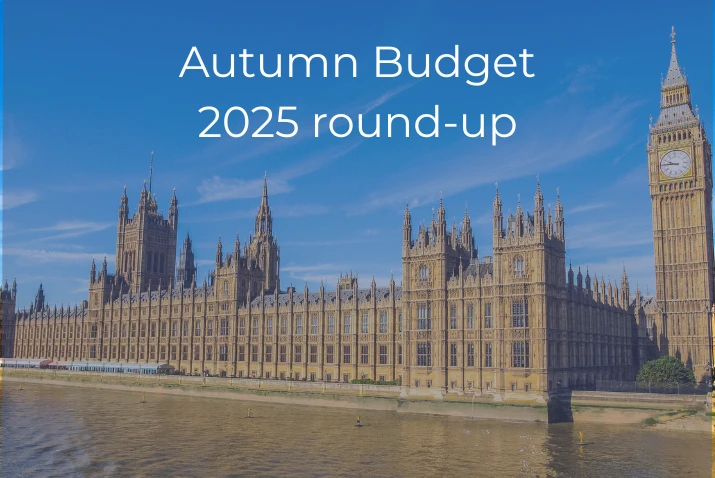The Spending Review on 11 June showed where the Labour government’s priorities lie regarding how to spend the country’s taxes.
Many changes had already been announced including supporting more pensioners with the Winter Fuel allowance and free school meals for an additional 500,000 children from September 2026. There was also increased monies for Health, Education, Defence, Science and Technology.
From a property perspective there was some good news - although nothing was announced to support first time buyers on the ladder and ease the pressures on the Private Rental Sector (PRS) which many had hoped for.
What are the five good news property outcomes from the government’s June spending review?
1# Boost to social housing
One of the most significant announcements was a huge increase in the budget for social homes between 2026 and 2036. The Chancellor has increased the budget from £2.3bn to £3.9bn per annum.
This is a significant increase in funding and will be much welcomed by those waiting for a social home. However, although this is a step in the right direction, it’s still a drop in the ocean when the current waiting list for social homes is in excess of 1.3mn households.
2# Better support for those in temporary accommodation
The government announced a £950 million fund to help local authorities switch from expensive hotel and bed and breakfast accommodation to higher quality temporary accommodation and an extra £100 million to help prevent homelessness.

3# Investment in transport
Many seasoned property investors know a new railway station, bridge, or road can greatly increase an area's attractiveness. This can translate into higher property prices and rents and attract more new construction activity, which can help establish or rejuvenate an area.
Although announced before the official spending review, a huge £15.6bn over the next six years (2027 to 2031) has been budgeted to invest in transport changes in regions outside of London, which has already received substantial investment for the Elizabeth Line and HS2.
The areas to benefit from this appear mostly to support Metro Mayors and include:
- An upgrade to the Transpennine Route should reduce travel time between Manchester and Leeds.
- £240 million to improve the number of passengers and reduce congestion at Leeds station.
- The delivery of East West Rail which will connect Oxford and Cambridge, boosting growth and housing development in the Oxford to Cambridge Growth Corridor.
- £300 million investment in Welsh rail including supporting the Burns Review stations, North Wales Level Crossing, Padeswood Sidings and Cardiff West Junction.
In addition to investments in transport, the government has pledged to build the first state-backed nuclear power station, Sizewell C, between Aldeburgh and Southwold on the Suffolk coast. This project should provide temporary jobs during construction and long-term work when the power station is up and running.
#4 Increased investment in local community projects
Further investment was announced to help fund 350 local community projects, which could mean improved local facilities that can make a real difference to an area, including parks, swimming pools, and better amenities for younger people.
The downside of this announcement for everyone living in a home and paying council tax is that the Spending Review also approved a rise of 5% per annum, which continues to pressure household budgets.

#5 Mortgage Guarantee Scheme will be made permanent
It was easy to miss, but the Spending Review quietly confirmed that the Mortgage Guarantee Scheme will be made permanent. There was no formal announcement and no further details, and with the current scheme ending on 30 June, buyers are left waiting until July to understand exactly what will change.
Sarah Thompson, Managing Director of our sister company Mortgage Scout, commented:
“The scheme allows lenders to offer 95% loan-to-value mortgages by providing a government guarantee on the portion between 80 and 95%. In practical terms, that gives buyers the chance to purchase with just a 5% deposit. With high rents and rising living costs making it harder to save, this kind of support is critical for those trying to move from renting to owning. However, the current scheme excludes new-build homes, which is a key issue for many first-time buyers. If the government wants to improve access, it should look at widening the scope of the scheme and making it more inclusive.
“Although mortgage rates are now starting to fall, the size of the deposit remains the biggest challenge for most buyers. A permanent guarantee scheme could bring much-needed consistency to the market and give both lenders and borrowers greater confidence. We will be watching closely for the details in July, but the signal from the government is clear: helping buyers with smaller deposits is back on the agenda.”
Although these five news stories were positive, Allison Thompson, our National Lettings Managing Director was keen to see more help for private renters:
“To ease pressure across the housing system, the government must do more to keep existing rental homes available, not just promise new ones. With a shortage of social rent properties, the private rented sector is doing the heavy lifting; however, with more tenants looking and fewer homes to let, that gap is becoming harder to fill. Councils in England spent £2.29 billion on temporary accommodation between April 2023 and March 2024, a 29% increase on the previous year. How much more will that rise while the government focuses on incentivising new development instead of supporting the homes we already have?
“At the same time, the cost of providing rental housing continues to increase. These pressures are ultimately felt by tenants, who are paying more and finding it harder to secure a suitable home. The Renters Rights Bill adds further uncertainty, and there is still no targeted support to help landlords upgrade properties ahead of the expected EPC changes in 2030. Without meaningful action to stabilise the private rented sector, the gap between housing need and housing access will only widen.”
Meanwhile, for first time buyers, Tim Foreman, Managing Director of Land and New Homes at our parent company LRG, said:
“The additional funding for affordable housing is very welcome especially as the demand for affordable housing, and cost of building it, continues to increase.
However, delivery of affordable housing would benefit from addressing a wider range of types and tenures than the government is currently providing for. Specifically, shared ownership plays a very important role in getting people on to the housing ladder and yet seems to have been largely ignored by this government.
The popularity of shared ownership is increasing, partly because today’s first-time buyers are paying almost a third more to get on the property ladder than they were five years ago. Furthermore, in the last decade the number of private renters moving into home ownership fell by 23%. The government’s current stance on housing affordability – not least the increases in Stamp Duty and the freezing of Lifetime ISAs - has resulted in policies that are making it even harder for first time buyers to enter the market. Shared ownership deserves the same level of government-assisted marketing as benefited the now defunct Help to Buy scheme and it seems detrimental to the whole ‘growth agenda’ that the government is ignoring this important tenure.
Overall, though, this was a good start to boost the supple of housing – especially for those needing an affordable roof over their head now and in the future.”








